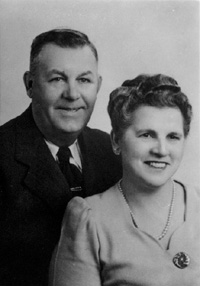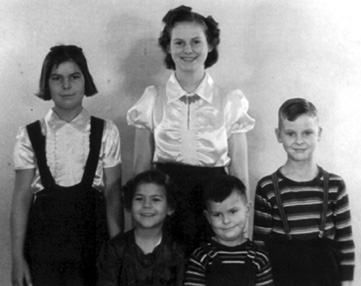
 |
| | Home |  
“Befriending
the ‘enemy’—one’s own” A U.S. soldier with Midwest roots who witnessed the liberation of Buchenwald, John Herder later wrote about his thoughts while he was in the camp [click here to read what German POWs held in Iowa wrote about Nazi concentration camps]:
Indeed, tens of thousands of sons of German immigrants of the early 20th century found themselves in Germany during World War II, firing upon their own cousins or the sons of their parents’ old friends or neighbors. While immigrants like Fritz Viering returned to the “New Germany” in the winter of 1936-37 and voiced criticism of the new regime, had he not left his native country and adopted the prevailing worldview and values of another, might he have become a Nazi, too? What would he had believed, had he been subjected to the same censored newspaper articles and stilted radio programming as the rest of his compatriots? How would he have reacted, had he witnessed the Nazis’ torch-lit parades, heard the exhilarating martial music or seen the ubiquitous flags and swastikas plastered everywhere? Had he never left Germany, but instead been swept up by the blind Group Think of his people that enabled the creation of the Third Reich, might he have fought for Hitler, helped deport the Jews or been a guard at a concentration camp? If Fate had handed him such a destiny, would Fritz have been a “willing executioner” or would he have colluded, simply out of fear or apathy? What happens to a person that determines if they become a victim, a bystander or a perpetrator in history’s larger dramas? “But for the grace of god go I”, no? Hermann Vogt (“Herman” in his
second homeland) had served time as a German POW (“prisoner of war”)
in France during the first world war—as did Gerhard Sander’s
father, shown in the photo below left. An immigrant to “Amerika”
in 1921, some two decades later Herman Vogt empathized with the German
soldiers who—like he a quarter century earlier—had been captured
in a war that only some of them believed in and the rest were forced to
fight. Herman and his fellow-immigrant wife, Martha, treated the German
men and boys working on their Iowa farm as kindly as they could: on weekends,
they visited the nearby branch POW camp in Eldora and gave them cigarettes,
candy and a sympathetic ear. While not subverting the American war effort
(to the contrary, they worked hard to produce vital war-time commodities
like corn and other crops), the Vogts did the “right thing”:
they rose above the times and tribe in which they lived and treated others
humanely, with compassion. That “love in action”—a principle
advocated by all religions of the world but so sorely neglected—changed
the lives of the men they touched. Some, like Gerhard Sander, would never
forget them—and, decades later, thank them for their kindness. Moreover,
those acts of kindness from more than half a century earlier would touch
entire families and towns, for generations…
Gerhard’s article follows, as translated by Michael Luick-Thrams: About Yesteryear
In this column people tell about occurrences from their childhood and youth. With these contributions ALTPAPIER records history—in a very personal way. ALTPAPIER reader Gerhard Sander tells the following story:
A Boy in POW Imprisonment On a Farm in Iowa
There isn’t a lot of time left to remember…
On the 28th of June 1943 I stood on a train station platform in Detmold
and waited, with many other boys also born in 1926, for a ride to the
Reichsarbeitsdienst [“Imperial Labor Service”]. I
was 16 years old and at home in Werl, near Bad Salzuflen. The freight
train took me and 50 other boys to Bremervoerde. After training with spades
and weapons we entered totally destroyed Hamburg in October 1943. There
we were trained for flak and in December were sent to Normandy, France.
We were supposed to protect a large military construction site. During
an attack we shot whatever we had; there was filth and dust everywhere—we
were all intact, but the construction site was completely destroyed.
Then came the 6th of June 1944, the “D-Day” of the Allied
invasion. Many of us died, but on the 26th of June I landed in American
imprisonment, along with some comrades from our group.
Via England and Glasgow/Scotland with the Queen Mary—a
gigantic passenger ship that had become a troop transporter in the war—we
landed in New York. From there we went further, to the U.S. Federal state
of Iowa. In the little town of Eldora we were housed in a former [Civilian
Conservation Corps] camp and worked in a canning factory or on area farms.
I came to work for farmer Hermann Vogt, who like many in Iowa was of German
descent. He was a man “with heart” and I happily remember
working on his farm. His wife Marta spoiled us with cakes and sweets.
In March 1946 I was sent via San Francisco through the Panama Canal to
a camp in England. I finally was home again in September 1947.
My story, though, isn’t over yet. As a family father during the
Cold War, I said rather jokingly “If our family should ever get
separated by a war, our collection point is with the mayor of Eldora,
Iowa, U.S.A”.
In September 1997—as the 50th anniversary of my return approached—my
oldest son wrote to that unknown mayor of Eldora and outlined for him
my experiences. And the letter was answered!
In Eldora the letter set loose a small avalanche. The local newspaper
wrote reports, and Gene Foster—the curator of the Hardin County
Historical Society, a kind of hometown history club—became our correspondent.
In the meantime an old surviving barrack from our camp has been restored
and dedicated as a small museum.
For me the most wonderful news was that Marta Vogt—“my”
farmwife—is still alive. She turned 95 this year and is still fit.
Many lovely letters have crossed over the big pond.
Through the newspaper articles in Eldora I relocated two comrades—one
in Stuttgart, one in San Antonio/Texas. And even beyond the personal,
things were set in motion. A female student is working on a scholarly
study of “POWs in Iowa” and [George Lobdell] a nephew of the
former camp commander is writing a book about the camp [The Golden
Rule Challenge, published by Classic Day, 2004].
That’s how a letter after decades can form contacts, bring people
together and let memories awaken again. It is worth it, to remember: many
little occurrences and stories occurred to me once again, to smile about
or to mourn. Click here for Midwesterners' stories of how they experienced German
POWs from "the other side".
|